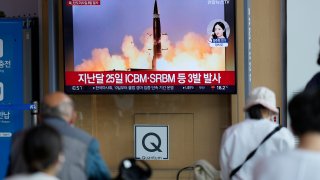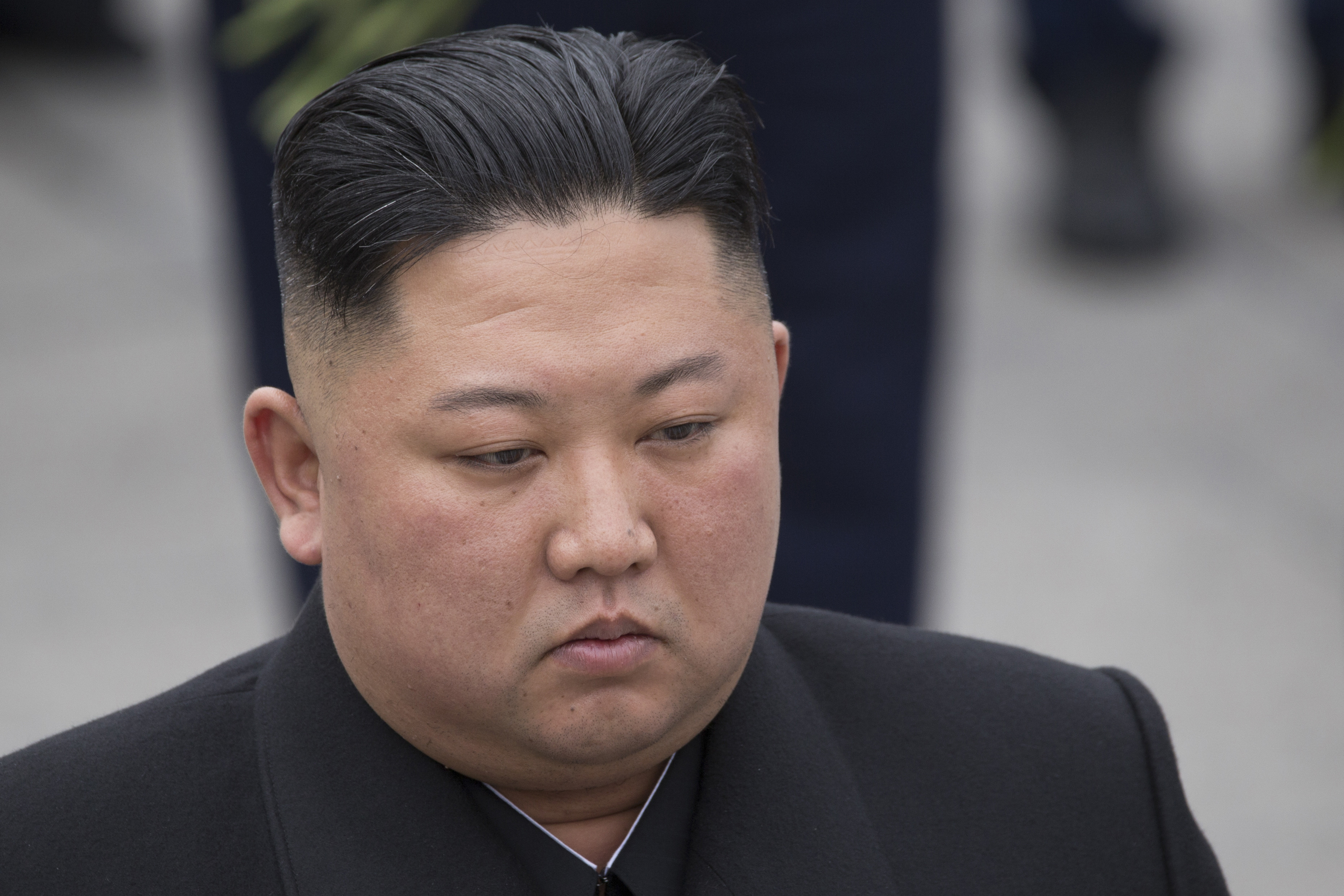
Air raid sirens sounded in South Korea after the North fired about a dozen missiles in its direction Wednesday, at least one of them landing near the rivals’ tense sea border.
The launches came hours after North Korea threatened to use nuclear weapons to get the U.S. and South Korea to “pay the most horrible price in history” as it has intensified its fiery rhetoric targeting the ongoing large-scale military drills between its rivals.
South Korea’s military said North Korea launched more than 10 missiles of various kinds off its eastern and western coasts.
The Joint Chiefs of Staff said in a statement earlier Wednesday that it detected three short-range ballistic missiles fired the North’s eastern coastal town of Wonsan. It said one of the missiles landed 26 kilometers (16 miles) away from the rivals’ sea border.
Get Southern California news, weather forecasts and entertainment stories to your inbox. Sign up for NBC LA newsletters.
Korean Peninsula Coverage:
The landing site is in international waters, but still far south of the extension of the nations’ border. South Korea’s military said it was the first time a North Korean missile had landed so close to the sea border since the countries’ division in 1948.
In 2010, North Korea launched artillery shells on a frontline South Korean island and allegedly torpedoed a South Korean navy ship, both off the peninsula’s western coast, killing a total of 50 people.
“This is very unprecedented and we will never tolerate it,” South Korea’s Joint Chiefs of Staff said in a separate statement.
The North Korean missile's landing site is also 167 kilometers (104 miles) northwest of South Korea’s Ulleung island, where an air raid alert was then issued.
The Joint Chiefs of Staff said South Korea won’t tolerate North Korean provocations and will sternly deal with them in close coordination with the United States. It said South Korea has boosted its surveillance posture on North Korea.
Animosities on the Korean Peninsula have been running high in recent months, with North Korea testing a string of nuclear-capable missiles and adopting a law authorizing the preemptive use of its nuclear weapons in a broad range of situations. Some experts still doubt North Korea could use nuclear weapons first in the face of U.S. and South Korean forces.
North Korea has argued its recent weapons tests were meant to issue a warning to Washington and Seoul over their series of joint military drills that it views as an invasion rehearsal, including this week’s exercises involving about 240 warplanes.
In a statement released early Wednesday, Pak Jong Chon, a secretary of the ruling Workers’ Party who is considered a close confidant of leader Kim Jong Un, called the so-called Vigilant Storm air force drills “aggressive and provocative.”
Pak also accused the Pentagon of formulating a North Korean regime collapse as a major policy objective in an apparent reference to the Pentagon’s recently released National Defense Strategy report. The report stated any nuclear attack by North Korea against the United States or its allies and partners “will result in the end of that regime.”
He slammed South Korean military leaders over what he called “rubbish” comments that threatened to destroy North Korea if it uses nuclear weapons.
South Korea’s military has warned North Korea that using its nuclear weapons would put it on a “path of self-destruction.”
“If the U.S. and South Korea attempt to use armed forces against (North Korea) without any fear, the special means of the (North’s) armed forces will carry out their strategic mission without delay,” Pak said, in an apparent reference to his country’s nuclear weapons.
“The U.S. and South Korea will have to face a terrible case and pay the most horrible price in history,” he said.
U.S. and South Korean officials have steadfastly said their drills are defensive in nature and that they have no intentions of attacking North Korea.
The White House on Tuesday pushed back against North Korea’s saber rattling, reiterating that drills are part of a routine training schedule with South Korea.
“We reject the notion that they serve as any sort of provocation. We have made clear that we have no hostile intent towards (North Korea) and call on them to engage in serious and sustained diplomacy,” White House National Security Council spokesperson Adrienne Watson said.
North Korea “continues to not respond. At the same time, we will continue to work closely with our allies and partners to limit the North’s ability to advance its unlawful weapons programs and threaten regional stability,” Watson said.
Associated Press writer Aamer Madhani in Washington, D.C., contributed to this report.



